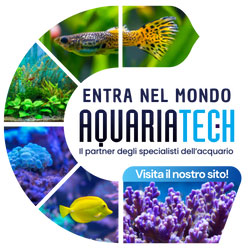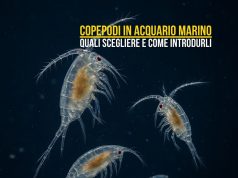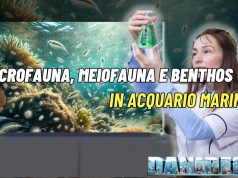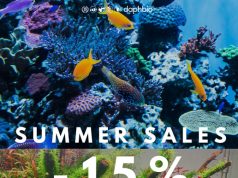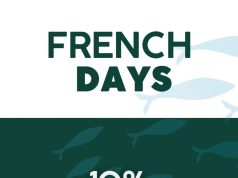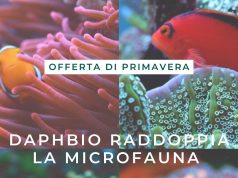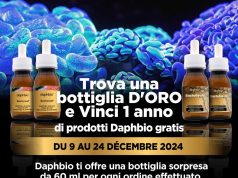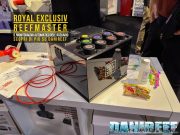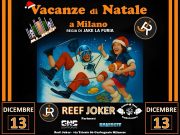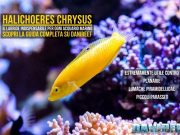
If we wanted to colonize or make our aquarium grow, at first we only thought at bacteria, then we introduced new sources of food for our bacteria, but now we finally can also be helped by microfauna and meiofauna.
This article is also available in: italiano
We’ve always thought about living rocks and their content of bacteria and microfauna. But today, even just compared to 10 years ago, the aquaristic world has changed. The living rocks are very hard to find and their costs have increased, and even if many people, me included, switched to synthetic rocks in order to avoid any unwanted organism, many others have to consider synthetic rocks for lack of alternatives.
This leads to a great problem, the lack of microfauna in acquarium. And the same microfauna could have been decimated by many other issuses, like for example an infestation of dinoflagellates, the use of medicines, cyanobacteria and other things.
The first times that aquarists had to face with this problem they countered with a small living rock, or sand colonized by their friends, and a lot of patience.
Now you can use Daphbio microfauna and meiofauna eggs
We’re talking about a product which contains, according to the technical sheet, the following organisms: microfauna, microrganisms, meiofauna and bacterioplankton. If we know very well the composition of the microfauna, that is made by amphipods and copepods, the composition of the meiofuna comprehends even smaller animals, but which are fundamental in every marine aquarium. And the bacterioplankton is actually the bacterial part of the plankton that lives in the water column.
Here, our video with the presentation of the products. The video is in Italian language, but you can add English subtitles to it.
Daphbio has been taking care of this product for about 30 years, and over time they improved it by variating the composition of the organisms. The product is homemade by Daphbio, that assures is 100% bio, and certifies the absence of polluting elements, pesticides and contaminants in general. In any case the product has to be kept in the fridge.
How to use Daphbio microfauna and meiofauna eggs
Daphbio microfauna and meiofauna eggs can be used to colonize synthetic rocks, by making the perfect starter kit with Daphbio Microfauna Booster and BactoReef (and next time we’ll see these products in depth), or it can be used as top quality food for gorgonians, not-photosynthetic animals and fish with problems like the Synchiropus, for example. According to the use, the dosage is different.

You have to dose it with the lights off, and also turn off the skimmer al least one hour before the dosage. You can turn it on the morning after.
Starting of a new aquarium: if you want to start a new aquarium even with synthetic rocks you need to pour all the content of the package in the aquarium, and be sure to follow the rules above here.
Maintaining of the aquarium or the recovery after cyanobacteria or other issues: You have to split the content of the package in two, and you have to pour the second half after a few days, and be sure to follow the rules above here.
Obviously, if you only want to feed the fish you can dose it day by day.
The product is so pollutant free that you can’t overdose it. But given the cost we all are going to stick with the indicated doses. In any case, Daphbio recommends to use a liter of microfauna and meiofauna eggs for aquariums of 60 to 4000 liters. The cost is 82,50 euro per liter.
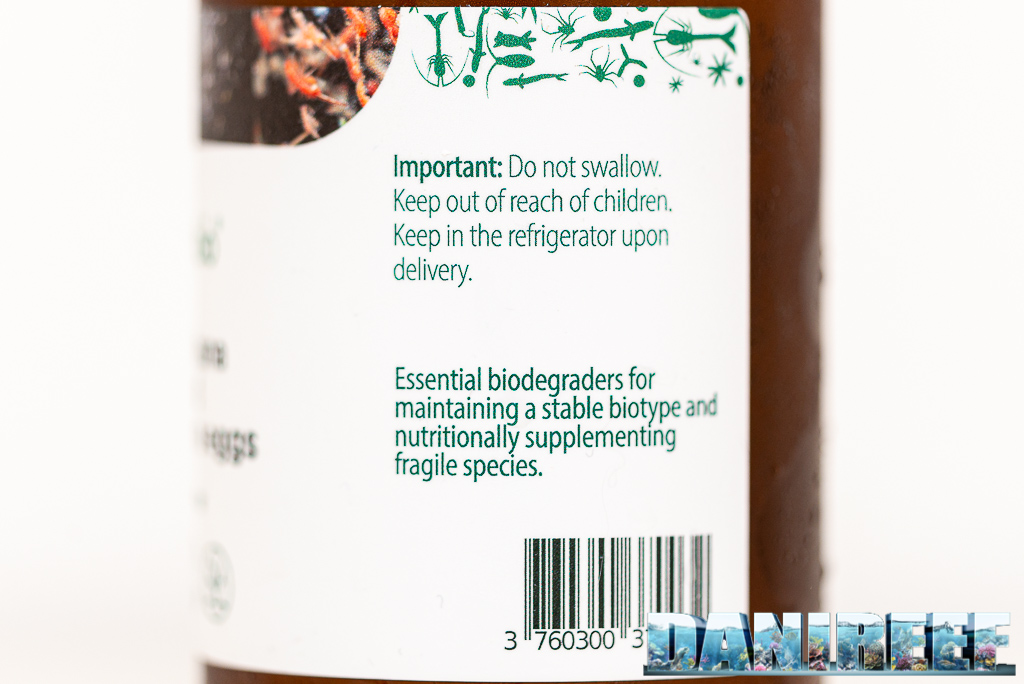
How will we use it?
As you know, we’re still in maturation, that turned out to be extremely longer than we thought, so we’re curious to use this product combined to BactoReef and Microfauna Booster, of which we’re going to talk about in the next weeks.
For further informations you can consult Daphbio‘s website by clicking here.






